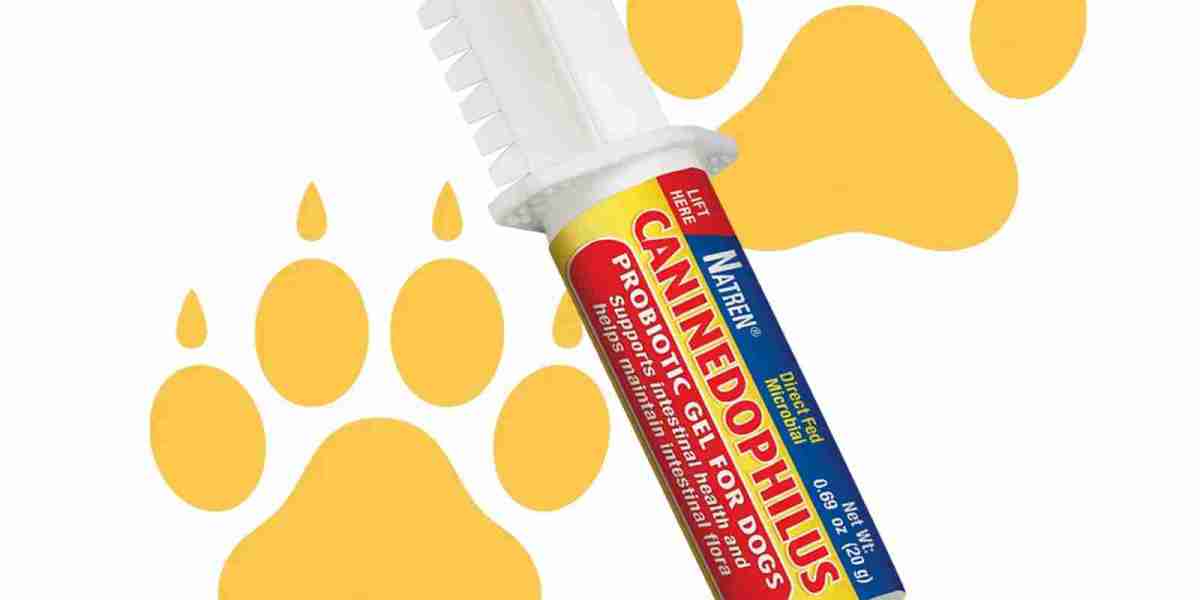As a pet owner, you strive to provide the best care for your furry companions. Nutrition plays a crucial role in your pets’ health, and one aspect that has gained attention in recent years is the use of probiotics. These beneficial microorganisms can positively influence the gut health of dogs and cats, leading to a range of health benefits.
Understanding how probiotics work and their advantages can help you make informed decisions about incorporating probiotics for pets into their diets.

What Are Probiotics?
Probiotics are live bacteria and yeasts that are good for health, especially the digestive system. While the term often brings to mind yogurt and dietary supplements, probiotics are also found in various fermented foods. For pets, they’re typically offered in powder, capsule, or chewable forms specially designed for dogs and cats.
The gut microbiome, home to trillions of microorganisms, plays a vital role in digestion, immunity, and overall health. A balanced microbiome contributes to a pet’s well-being, while an imbalance can lead to health problems. Probiotics help maintain or restore this balance.
Digestive Health
One of the most significant benefits of probiotics is their positive impact on digestive health. Dogs and cats can experience gastrointestinal issues due to factors like stress, dietary changes, or illness. Probiotics can help alleviate symptoms such as diarrhea, constipation, and bloating.
For pets with conditions like inflammatory bowel disease (IBD) or pancreatitis, probiotics can promote a healthier gut environment. They work by competing with harmful bacteria, reducing inflammation, and improving nutrient absorption.
Enhanced Immune Function
A healthy gut contributes to a strong immune system. Since most of a pet’s immune system resides in the gastrointestinal tract, the microbiome is critical for immune responses. Probiotics help strengthen immunity by boosting antibody production and supporting immune cell activity.
Including probiotics in your pet’s diet can lower the risk of infections and illnesses, especially during seasonal changes or stressful periods like travel or routine changes. A balanced microbiome helps your pet fend off pathogens and recover quickly from illnesses.
Allergies and Skin Health
Pets, like humans, can have allergies that cause skin irritations and digestive issues. Probiotics may help manage these reactions by improving gut health and reducing inflammation.
Some probiotic strains have been shown to relieve symptoms of food allergies in dogs and cats. By enhancing gut health, probiotics can improve the skin barrier, reducing itchiness and promoting healthier skin.
Mental Health and Behavior
Emerging research shows a connection between gut health and mental well-being, often called the "gut-brain axis." Stress and anxiety in pets can lead to behavioral problems, and probiotics may help manage these issues.
By balancing the gut microbiome, probiotics can contribute to a calmer temperament in pets. Studies suggest they may help reduce anxiety-related behaviors, making them a valuable tool for pets prone to stress.
Weight Management
Obesity is a growing problem for pets, linked to health issues like diabetes and joint problems. Probiotics may aid in weight management by influencing metabolism and fat storage.
Some probiotic strains help regulate appetite and promote fat breakdown, supporting healthy weight. Including probiotics in your pet’s diet, along with a balanced diet and regular exercise, can aid weight management efforts.
Post-Antibiotic Recovery
While antibiotics are sometimes necessary to treat infections, they can disrupt the balance of gut bacteria. After a course of antibiotics, pets may experience gastrointestinal upset, including diarrhea.
Probiotics can restore the gut's natural balance after antibiotic treatment, minimizing side effects and speeding recovery. It’s best to consult your veterinarian for advice on the timing and type of probiotic to use alongside antibiotics.
Choosing the Right Probiotic
When choosing probiotics for your pets, opt for products specifically designed for dogs or cats. Human probiotics might not be suitable, as strains and dosages differ.
Look for products with clear strain information and the number of colony-forming units (CFUs) per serving. Higher CFU counts don’t always mean better results—select strains proven effective for your pet’s needs. Consult your veterinarian for recommendations based on your pet’s health and dietary requirements.
Monitoring Your Pet’s Response
After adding probiotics to your pet’s diet, monitor their reaction. While most pets tolerate probiotics well, some might have mild digestive upset at first as their gut adapts.
Watch for changes in behavior, appetite, and overall health. If adverse reactions like persistent diarrhea or vomiting occur, stop using the probiotic and consult your vet.
Incorporating Probiotics into Your Pet’s Diet
Probiotics are easy to include in your pet’s routine. Many pet foods now contain probiotics, and standalone supplements can be added to their food or given as treats.
Start with a low dose and gradually increase it to let your pet’s digestive system adjust. Consistency is key to achieving health benefits.
The Future of Probiotics in Pet Health
As research uncovers the benefits of probiotics, their importance in pet health is growing. From digestive support to immune boosting and beyond, probiotics offer a holistic way to care for your pets.
By staying informed about advances in pet nutrition, you can make choices that enhance your pets’ health and quality of life. Probiotics are a promising tool for supporting your pets’ well-being, helping them lead happy, vibrant lives.



